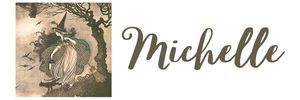I apologize for delaying and combining the final two discussions into one. I'll admit I struggled with the middle section of the book. While I enjoyed the magical realism, I sometimes felt Allende went into too much detail.
Frankly, I was horrified when it came down to the coup d'etat with the government and military. The warnings early on of what was probably going to happen, with the left and the right constantly at odds, and the right not giving a shit about the poor. Sound familiar? I can only hope that our country never comes to that, but I'm certainly not going to say it could never happen because the sad reality is...it could.
I did a Google search to see if there was any historical context regarding the political upheavals in the book (which I figured there was some basis in fact). Turns out...
HOS could be considered a fictional version of the history of Chile from the 1930s to the 1970s leading up to the military coup d’état led by General Pinochet. In fact, politics is a major theme throughout the novel, as there is constant conflict between the socialists and conservatives. The characters in the novel resemble known characters during the Chilean revolution. For example, Pedro Tercero parallels the tale of Victor Jara. Both were musicians and used songwriting to express their revolutionary ideas. Unlike how Jara was murdered, Tercero was simply kicked out of the Tres Marias and eventually runs away to Canada with Blanca. Other parallels include the novel's the Poet and real life, famous Pablo Neruda, whose real death came twelve days after the coup d’état. The Poet’s funeral was somberly described in the final pages of the novel. Another parallel was the fictional character, the President, in conjunction with real life Salvador Allende, who was assassinated very accurately described in the novel. The behind-the-scenes drama of left versus right and super power USA versus USSR was also dramatically brought to life in this novel.
Most importantly, General Hertado correlates with the persona of Augusto Pinochet. Both yearned for power and money. Similar to how Pinochet overthrew socialist President, Allende, Trueba dedicated all his work to support the right-wing government. Ultimately, Pinochet became president and Trueba became disenchanted, isolated, and ignored by the military rulers. The 1970-1980s were the saddest period in Chilean history where a “brain-drain” where the talented and well-educated fled the country and stripped the nation of its best and brightest for a generation including Miss Allende.
Source: The House of the Spirits - Historical ContextWhat befell Alba during the upheaval was horrific. It was heartening to learn that Trueba had worked with Miguel to find her. I think in the end Trueba finally realized how wrong he had been about everything. His political ideology had harmed his family, and I feel family, above all, was ultimately the most important thing to him. Clara, with her clairvoyance, never truly abandoned him because I think she knew deep down the truth about him.
At the end, I was teary-eyed. The quote below really got me at the end. The older I get the more I think back and try to remember things that happened in my life, particularly having to do with my sons. I wish I had written down more, kept notebooks, as Clara did. My mom has always kept a journal so I know when she finally leaves this world it will be sad to read them, but also a blessing to have all those memories captured for all time. Personally, I have started thinking back and writing things down because I feel it's never too late.
"I write, she wrote, that memory is fragile and the space of a single life is brief, passing so quickly that we never get a chance to see the relationship between events; we cannot gauge the consequences of our acts, and we believe in the fiction of past, present, and future, but it may also be true that everything happens simultaneously--as the three Mora sisters said, who could see the spirits of all eras mingled in space. That's why my Grandmother Clara wrote in her notebooks, in order to see things in their true dimension and to defy her own poor memory."
If you joined me for the read-along, I'd like to thank you. Please share any final thoughts you had on the book in the comments.
I did a more extensive write-up about this book for Banned Books Week at my main site, True Book Addict. You can read that here.


